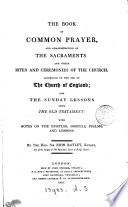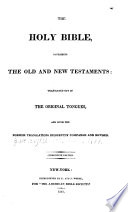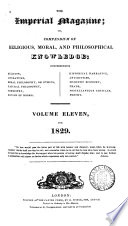 | John Hoyland - 1816 - 486 pages
...m-\ : a land wherein thou shalt eat bread, without scarceness ; thou shalt not lack any thing in it ; a land whose stones are iron, and out of whose hills thou mayest dig brass." Deut. viii. 7, 8, 9. And the Lord- said unto Moses : " This is the land which I sware unto Abraham,... | |
 | Church of England, Sir John Bayley - 1816 - 738 pages
...; 9. A land wherein thou shalt eat bread without scarceness, thou shalt not lack any thing in it ; a land whose stones are iron, and out of whose hills thou mayest dig brass. lo. When thou hast eaten and art full, then thou shalt bless the LORD thy God, for the good land which... | |
 | Sarah Trimmer - 1817 - 430 pages
...honey ; a land wherein them shalt eat bread without scarceness, thou shalt not lack any thing in it ; a land whose stones are iron, and out of whose hills thou mayest dig brass. When thoM hast eaten and art full, then thou shalt bless the LORD thy GOD for the good land wkich he... | |
 | Robert Robinson - 1817 - 590 pages
...it was an observation of mineral colours that made Moses add, when he was praising the land of eyes, a land whose stones are iron, and out of whose hills thou mayest dig brass (5). It was natural to assimilate different springs to the eyes of different animals to describe the... | |
 | 1817 - 1082 pages
...honey; 9 A land wherein thou shalt eat bread without scarceness, thou shalt not lack any thing in it; y 10 * When thou hast eaten and art full, then thou shalt bless the LORD thy God Before CHRTST t Heb.te/orfHv/o«.... | |
 | 1819 - 948 pages
...; 9 A land wherein thou shalt eat bread without scarceness, thou shalt not lack any thiiit; in it: a land whose stones are iron, and out of whose hills thou mayest dig brass. 10 When thou hast eaten and art full, then thou shalt bless the LORD thy God for »hr good land which... | |
 | 1829 - 632 pages
...were walled and embattled for war. The character of this land of promise, given by Jehovah, viz. " whose stones are iron, and out of whose hills thou mayest dig brass," Deut. viii. 9, gives us a definitive idea of the quality of its building materials : stone ever abounds... | |
 | William Bengo' Collyer - 1820 - 514 pages
...purposes, in those, as we have before seen, it was promised that the country should abound ; it was to be " a land whose stones are iron, and out of whose hills thou mayest dig brass," or copper. (Deut. viii, 9.) We read of coals with which they made Jires, as if they were mineral coals... | |
 | Joseph Benson - 1824 - 216 pages
...honey ; a land, wherein thou shalt eat bread without scarceness, thou shalt not lack any thing in it ; a land, whose stones are iron, and out of whose hills thou mayest dig brass." In this sense, then, we may lawfully take this passage, and thus taken it may be considered as a striking... | |
 | 874 pages
...honey" being extracted from " the rock and oil from the flinty rock ;" and of their mineral riches " whose stones are iron, and out of whose hills thou mayest dig brass" (copper). The former statement was not a mere poetical fiction, for owing to the skill and perseverance... | |
| |